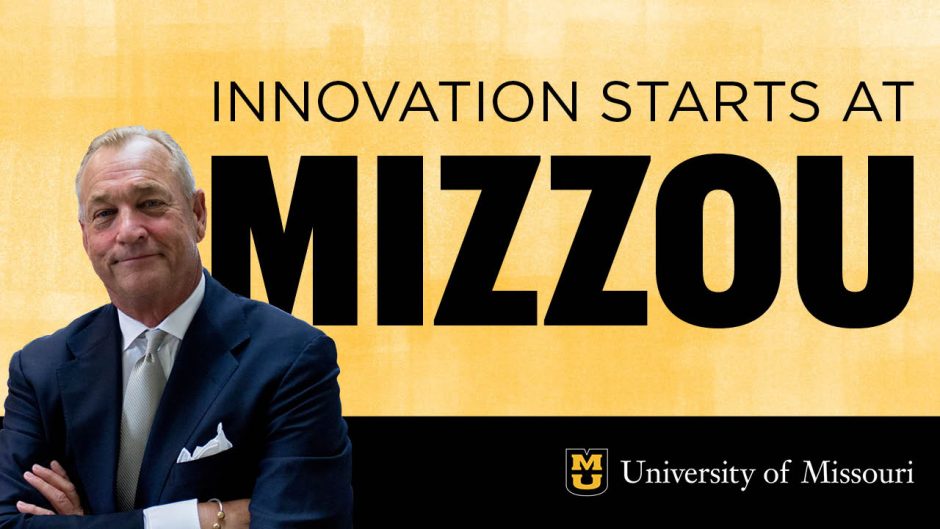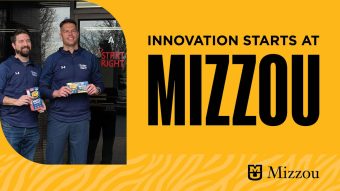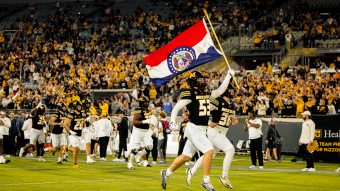
Oct. 30, 2024
Contact: Janese Heavin, heavinj@missouri.edu
Ideas are powerful, but without action, they remain just that — ideas. The University of Missouri bridges that gap by empowering students to turn vision into reality through hands-on entrepreneurial experiences.
Championing this learn-by-doing philosophy is Robert Griggs, B.S. A.E. ’77, founder and chairman of Trinity Products. Griggs’ dedication to innovation and mentorship is deeply embedded in Mizzou’s entrepreneurial ecosystem.
If his name sounds familiar, it’s for good reason. He and his wife are the founding sponsors of the Robert and Shelly Griggs Family Innovators Nexus, a hub for creativity and entrepreneurship on campus. Located in the MU Student Center, the Griggs Innovators Nexus provides students with resources such as meeting rooms, incubator spaces, mentors and even retail storefronts. There’s also an annual competition, Entrepreneur Quest, where students can pitch ideas and compete for cash prizes.
And Griggs — who knows first-hand how to turn proposals into profits — isn’t just supporting these efforts with financial gifts. He takes time to come to campus to serve as a mentor, work with students, judge events and talk to classes. And he loves being a part of the action.
“It’s a joy to see these students and hear their ideas,” Griggs said. “It’s so fun to watch their progress.”
From farm to fortune
Griggs’ entrepreneurial journey — rooted in the lessons he learned growing up on a farm in southeast Missouri — is a testament to the power of vision and hard work.
At Mizzou, he studied agricultural economics. He wasn’t a straight-A student, he admits, but he did learn to persevere when the going got tough.
“I took a managerial accounting class that just didn’t register,” Griggs said. “I talked to the professor and sat in the front row, but I ended up failing. I took it a second semester and made an A. There are just some concepts you really have to work hard to get.”
Griggs lists that experience as just one example of how Mizzou equipped him with the business acumen and skills needed to build a company from the ground up.
After graduation, Griggs took a job selling steel pipes. When he realized the company was shortchanging his commission, Griggs and two other employees walked out.
Trinity Products opened shortly after, in 1979, starting as a steel pipe supplier for the heavy construction industry. Within 20 years, Trinity expanded its fabrication, drafting, detailing and coating capabilities to become a full-service facility.
Today, the company brings in $300 million in annual sales with 245 employee-owners at six locations across the country.
While hard work, determination and vision played key roles in that organic success, Griggs also credits the adoption of certain management styles that promote transparency and shared ownership. In 2010, the company implemented continuous improvement methodologies, rewarding employees for meeting short- and long-term goals.
These days, Griggs has his eye on the $1 billion mark, a vision he’s mapped out not only in his head, but also in writing and practice.
“I’m an advocate of letting people know where you want to and need to go,” he said. “When we were doing $30 million in sales, I wrote a goal of $100 million, and people thought I was crazy. But they didn’t know what I knew. When we say we’re going to get to a billion, we have the capacity, and we have the want. Now it’s just a matter of adding another zero.”
Future of opportunity
Griggs knows times have changed since his days of building a manufacturing giant from scratch. That doesn’t mean there aren’t opportunities for the next generation.
Technology will be key, he said, recalling a time about 10 years ago when a Mizzou student told him drones would be important to the future of industry. At first, he admits, he was skeptical of the student.
“And wouldn’t you know that five years later, drones were delivering packages, inspecting crops and surveying construction sites,” he said. “She was completely ahead of her time.”
But success doesn’t always come from ground-breaking innovations. Sometimes, it’s simply doing something no one else wants to do. Among the best business ideas he’s heard from a Mizzou student: washing windows.
“No one’s washing windows,” he said. “There are opportunities in the mundane things if you can figure out how to do it. Where there’s a need and you can fill it, there’s an opportunity.”
And the Griggs Innovators Nexus, together with the Missouri Method philosophy of learning by doing, ensures that students are well-equipped when these types of opportunities arise.
“Mizzou has a really good ecosystem for this,” he said. “University of Missouri President Mun Choi totally gets it. He understands the need to provide practical experiences and opportunities for students. I always enjoy going back to Mizzou and hearing their ideas.”
For Griggs, giving back has been one of the most rewarding aspects of his extraordinary career.
“The more I give, the more I receive,” he said. “My basket is so full, it’s overflowing.”



